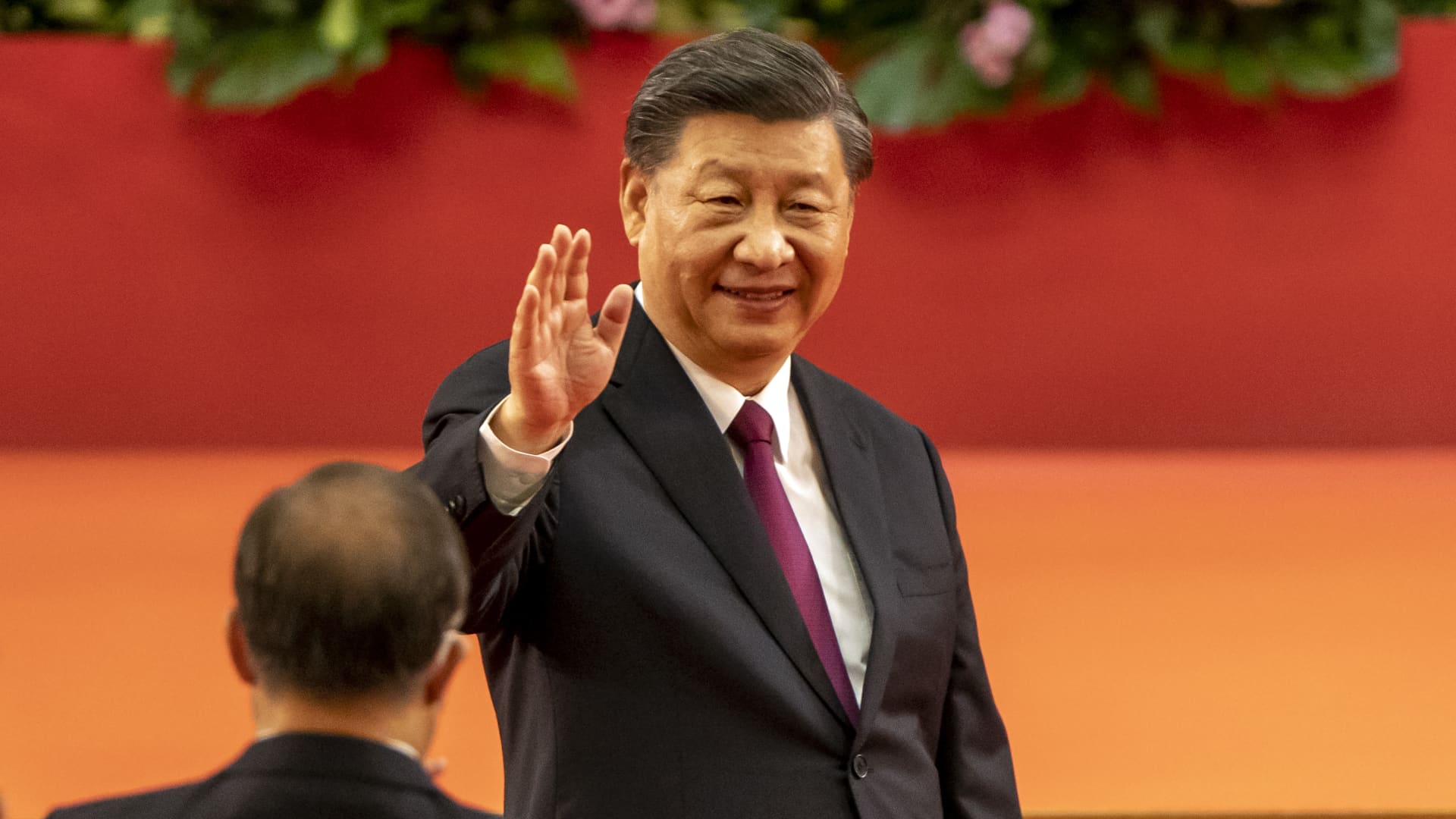Products You May Like
BEIJING — China’s leaders are set to convene in Beijing on Oct. 16 for a major political meeting that’s expected to consolidate President Xi Jinping‘s power and signal forthcoming economic policy.
This year’s gathering takes on additional significance as it’s become a widely watched marker for when China may begin to ease its stringent zero-Covid policy.
The Communist Party of China’s top leaders are expected to propose that the party hold its 20th National Congress on Oct. 16 in Beijing, state media announced Tuesday.
It’s “the most important political event of the decade in China,” Citi analysts wrote in a note last week.
“The Congress is set to launch a new political economy cycle,” the Citi report said. “In the near term, it may help reduce policy uncertainty and allow Beijing to refocus on economic development.”
The national congress is held every five years and is primarily a political event to determine the next group of leaders for the ruling party.
Xi will likely increase his share of political associates at the top two levels of the Chinese leadership, according to Eurasia Group, which predicted the majority of his political associates holding seats on the Politburo will increase to 80% from 60%, and rise to 57% from 43% in the Politburo Standing Committee.
“Larger majorities of Xi associates on these bodies would support Eurasia Group’s view that mounting economic difficulties and rising cross-strait tensions have not weakened his power, which flows mainly from command of core institutions of authoritarian rule such as the military, security services, law enforcement, propaganda outlets, and personnel selection,” according to the report on Aug. 18.
“Reduced representation of Xi associates would suggest rising internal resistance to his rule,” they pointed out.
Xi rose through China’s political ranks to officially become president in 2013. He abolished term limits in 2018, and the latest political shuffle is widely expected to grant him an unprecedented third term.
Premier Li Keqiang, the second-in-command, said he would end his term as premier in 2022. Other likely changes include leaders on foreign policy.
“The congress will thoroughly examine the current international and domestic situation,” an official English-language release said.
The meeting will “formulate action plans and fundamental policies,” the release said.
However, details on decisions made at the party congress likely won’t be formalized until the so-called “two sessions” annual parliamentary meeting that typically takes place in early March.
End in sight for zero-Covid?
The expected mid-October congress puts a tentative date on when China might ease its so-called dynamic zero-Covid policy.
“We expect the zero Covid policy to be revised after the meeting in Oct, which will help the economy to normalize,” Zhiwei Zhang, president and chief economist, Pinpoint Asset Management, said in a note.
While much of the world has relaxed most Covid curbs, Beijing’s attempt to maintain a policy of few to no Covid infections has restricted business activity domestically and kept national borders largely shut for more than two years.
Citi analysts said the ruling party may even “push China’s reconnect[ion] with the world hard as soon as it decides to exit from [dynamic zero-Covid] to earn back the lost political capital.”
But growth is expected to remain sluggish in the meantime.
“We expect the path to China’s economic recovery to be a slog as local governments are likely [to] be cautious about relaxing business restrictions ahead of the 20th Party Congress due to fears of COVID resurgence,” said Wei Li, senior China economist at Standard Chartered, and a team in an Aug. 15 note.
The firm cut its full-year GDP forecast for China to 3.3% from 4.1%. Other banks have repeatedly cut their expectations to similar levels — well below the country’s official target of around 5.5%.
A slump in China’s massive real estate industry and slowing global demand — a hit to exports — pose additional drags to growth.
China’s third-quarter GDP is due to be released on Oct. 18.
— CNBC’s Jihye Lee contributed to this report.
